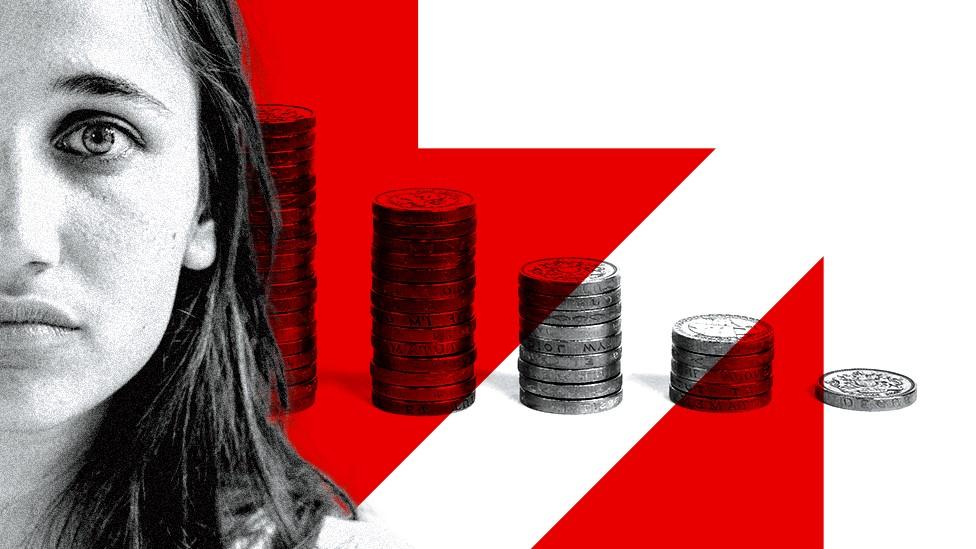UK not in recession, new figures suggest
- Published
- comments

The UK's economy grew in the second quarter of this year, contrary to an initial reading which said it had shrunk, revised official data suggests.
Economic output rose by 0.2% between April and June, revised up from a previous reading of -0.1%, the Office for National Statistics (ONS) said.
It suggests the UK is not currently in recession, as was predicted by the Bank of England earlier this month.
However, the economy is still smaller than it was before the Covid pandemic.
This is because the new ONS figures show the impact of Covid on the economy was more severe than previously thought, and it had shrunk by more than estimated in the first few months of the pandemic.
As a result, the ONS said the economy was still 0.2% smaller than pre-pandemic levels, whereas it had said previously it was 0.6% bigger.
The ONS said that the UK was the only economy in the G7 group of nations yet to rise above its pre-coronavirus pandemic level seen in the final three months of 2019.
Commenting on the revised figures, ONS chief economist Grant Fitzner said: "These improved figures show the economy grew in the second quarter, revised up from a small fall."
"They also show that, while household savings fell back in the most recent quarter, households saved more than we previously estimated during and after the pandemic."
Samuel Tombs, chief UK economist at Pantheon Macroeconomics, said: "The downturn in economic activity during 2020 looks even worse than previously thought, and the subsequent recovery even weaker, following the latest set of national accounts revisions."


The good news is that the economy wasn't going into reverse over the summer, the bad news is that's because the economy was smaller than previously thought prior to that point.
With some consumers opting to hang on to savings built up during the pandemic rather than spend, the economy is still not, unlike some competitors, bigger than its pre-pandemic peak.
So a growth plan to boost our prosperity, as the government intends, seems ideally timed.
But some economists point out that our productive capacity is limited - just look at the shortages of skilled workers. So as it stands, those £45bn of tax cuts may be even more likely to boost prices, and ultimately rates, if they prompt higher spending.
So some worry those plans are untenable - unless the government can find sufficient measures to turbo-boost the productive capability of our economy, by boosting skills or infrastructure or streamlining processes. Trouble is, those type of measures don't take effect overnight.

The size of the UK economy is measured through its Gross Domestic Product (GDP). This is the value of all the activity of companies, governments and individuals in a country.
Earlier this month, the Bank of England had warned the UK could already be in a recession - which is defined as two three-month periods of GDP shrinking in a row.
The Bank predicted the economy would shrink by 0.1% in the July-to-September period, and at the time the economy was thought to have shrunk in the previous quarter.
Mr Tombs said Friday's new figures would compel the Office for Budget Responsibility (OBR) to further revise down its estimates for future growth.
The OBR is the independent watchdog for the government's finances. It usually produces economic forecasts twice a year, to accompany each Autumn Budget and Spring Statement.
The lack of an OBR forecast to accompany last week's mini-budget from the government has been seen as one of the reasons for this week's turmoil on the financial markets.
It had offered to prepare a draft forecast in time for the mini-budget, but it was not taken up.
The government's tax-cutting plan faced criticism from the International Monetary Fund and the pound dropped to a 37-year low of $1.03 on Monday.
On Friday, sterling rose to $1.12 - close to the level the currency was at before the mini-budget was announced one week ago.
Prime Minister Liz Truss and Chancellor Kwasi Kwarteng are meeting the chairman of the OBR on Friday to discuss the fallout.
Related topics
- Published10 May 2024

